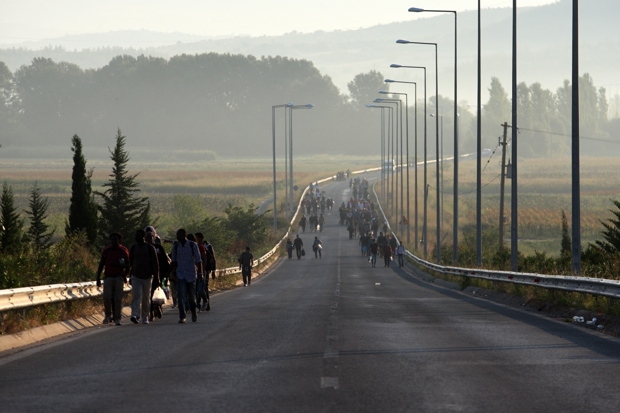Today it’s widely accepted that Germany is not only the most popular country on earth, but the world’s moral leader, admired far more than the United States or Britain, let alone the likes of Russia or China.
This has been illustrated once again by the country’s extremely generous treatment towards Syrian refugees, which stands in contrast to that of the Gulf Arab states who have let in none whatsoever, despite some of them having played a role in funding the disastrous civil war there.
Why are the Gulf states so lacking in compassion? It’s not because Arabs are ungenerous as people; they have a great culture of hospitality, and alms-giving is a pillar of their faith. One possibility is that it is a reflection of the gap between shame and guilt cultures, a distinction suggested by anthropologists such as Ruth Benedict. It was Benedict who laid out the differences between America’s guilt culture, emphasising internal conscience, and Japan’s shame culture, which in contrast looked at how behaviour appears to outsiders.
The main shame cultures are those of the Far East and Middle East, while the guilt cultures are those of Europe, especially north-west Europe. We talk of German guilt about the Holocaust, but the German sense of personal guilt runs far deeper than that. It’s no coincidence that the country has produced some of the most personally tortured moral philosophers.
There are at least two theories as to what drove the creation of a guilt culture. One is that European societies tended to involve far more interaction with people to whom we are not related, and internalising one’s conscience was the only way of adapting from more clannish societies. The other, and more likely cause, is Christianity, which transformed shame-based societies, like that of Anglo-Saxon England, into guilt-based ones.
The most common phrase used by those wishing to accept more refugees is to talk of ‘Europe’s shame’ or ‘Britain’s shame’, a word also used on placards by refugees stuck in Hungary. But what they’re actually appealing to is Europe’s sense of guilt. Certainly that’s my personal reaction when I see the awful scenes – guilt that by an accident of birth my life is far easier and safer.
The downside to guilt culture is that social justice politics, having evolved from Christianity, often sounds sanctimonious – a deeply unattractive trait. In particular, Christianity’s universalism, referencing St Paul’s idea that there is no distinction between Jew and Greek, can often lead to pathological altruism. This is problematic, especially when it involves integrating people from a shame culture into a guilt culture, and in particular the second generation when the restraints of the former are lifted. The Syrian war is like a positive feedback loop of migration and misery, with alienated second-generation Muslim immigrants leaving Europe to fight jihad in the Middle East, which in turn ruins the lives of middle eastern Muslims, who are forced to settle in Europe.
It is because of Europe’s previous immigration problems that many people are reluctant about accepting more people from the Middle East. In recent days, however, their reservations have been overruled by our culture of guilt and the silent triumph of Christianity.







Comments